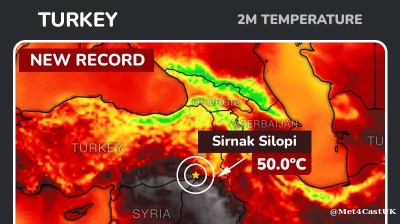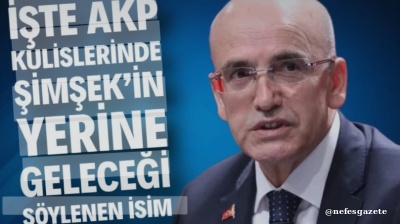Iranian President Hassan Rouhani on April 8 called on the International Monetary Fund (IMF) to meet its commitments by awarding Iran a requested $5bn in emergency funding to help it address its coronavirus (COVID-19) outbreak, the worst in the Middle East. There are fears among Iranian and European officials that the US Trump administration is blocking the payment.
Rouhani said the IMF would be “discriminating against Iran” if it failed to provide the funding from its Rapid Financing Initiative, which is supposed to aid countries faced with sudden shocks such as natural disasters.
“I urge international organisations to fulfil their duties ... We are a member of the IMF,” Rouhani said at a televised cabinet meeting, adding: “There should be no discrimination in giving loans.” Iran, the president said, was a fully paid-up member of both the IMF and World Bank and puts some of its resources at their disposal.
“If there is to be discrimination between Iran and other countries, it is not tolerable for us and world public opinion,” Rouhani added. "We haven't asked for anything from the Fund for the last 50 years even as we have fulfilled our obligations. If they [the IMF] do not fulfil their duties in these difficult circumstances, the world will have a different take on this issue," Rouhani added.
Rouhani also tweeted his outrage in English.
8, 2020I want to remind the international community of their duties in this pandemic crisis. We are a member of the International Monetary Fund (#IMF) and World Bank. It is unacceptable to discriminate between different nations, both for us and the global public opinion. #COVID19
— Hassan Rouhani (@HassanRouhani)I want to remind the international community of their duties in this pandemic crisis. We are a member of the International Monetary Fund (#IMF) and World Bank. It is unacceptable to discriminate between different nations, both for us and the global public opinion. #COVID19
— Hassan Rouhani (@HassanRouhani) April 8, 2020
In a tweet on April 5, Secretary of Iran’s Supreme National Security Council, Ali Shamkhani, directly accused the US of blocking Tehran’s loan request from the IMF.
An IMF official said earlier this week that the Fund was in dialogue with Iran, with talks aimed at grasping Iran’s needs and what is required for the loan request to be processed.
In further stinging comments, Rouhani also bitterly attacked the US for its ongoing sanctions campaign against Iran, which analysts widely agree have hindered Iran’s effort to respond adequately to its severe difficulties in the face of the coronavirus pandemic. "History will remember that the White House, so far, has been an economic terrorist, and in medical care has been a terrorist as well," he said.
The sanctions technically exempt food and medical supplies, but human rights reports from Iran have consistently pointed out that the effect of sectoral sanctions on gaining access to crucial medicines and medical equipment, including respirators and protective equipment for healthcare workers, is real. Iran is all but shut out of the world financial system by the “maximum pressure” sanctions, meaning financing fast flows of essential goods with hard currency, whatever the products may be, can be nigh on impossible, they say.
"I think an Iranian who has long maybe thought that the United States was a benign power that took take care of other countries in moments of crises instead is seeing this nationalistic America first response," Sanam Vakil, an Iran expert at UK foreign policy institute Chatham House, told CNN on April 8. "I think that this is sort of adding to the challenge of ordinary Iranians. They're realising that they're really alone," she said.
Zarif reaches out to Russia
Iranian Foreign Minister Mohammad Javad Zarif, meanwhile, has been reaching out to Russia, writing in Russian on Twitter.
Zarif called on Russia to allow “a green channel” to allow the continuation of trade via regional countries and the Caspian Sea.
8, 2020Иран приветствует российскую идею о "создании зеленого коридора вместо экономической войны и санкций".
— Javad Zarif (@JZarif)Иран приветствует российскую идею о "создании зеленого коридора вместо экономической войны и санкций".
— Javad Zarif (@JZarif) April 8, 2020
Earlier, Russian President Vladimir Putin at the G20 summit on the coronavirus emergency stated that it was important "to create so-called green corridors free of trade wars and sanctions for the mutual supply of medicines, food, equipment and technology during the crisis."
Russia has said it will allocate Iran a loan for €1.2bn for the construction of a power plant in the south of the country, It has also welcomed the Islamic Republic playing the role as a partner of the Eurasian Economic Union (EEU) by way of a temporary preferential trade agreement.
It remains to be seen whether the loan amount has been transferred to Iran or whether Tehran is now pressing Russia for the transfer of the money to be expedited as a means it can use in addressing the pandemic.
Iran’s Supreme Leader, Ali Khamenei, this week authorised the withdrawal of €1bn from the National Development Fund (NDF), a sovereign wealth fund, to help battle the coronavirus outbreak. The move may have been made as word spread that the probability that the US would veto the applied-for IMF funds remained high.
News

Iran passes controversial fake news bill amid free speech concerns
Iran's parliament on July 27 approved a contentious government bill aimed at "Combating the Spread of Untrue News Content" in social media

Russia, China to set their own gold exchanges, cut ties with Western control
Russia and China are taking concrete steps to reduce Western influence over global gold markets, signalling a broader move towards monetary self-reliance and the redomiciliation of gold reserves away from traditional Western centres.

50° “edge of survival” heat hits Turkey for first time in recorded history
“This is climate change, and it’s accelerating,” say weather experts. President, meanwhile, refers to “truly great disaster” facing country as wildfires spread.

Intense fighting around Pokrovsk as Russia targets logistics hub
Ukrainian President Volodymyr Zelensky said on July 26 that fierce battles are raging around the key logistical hub eastern city of Pokrovsk, which Russian forces make making an intensified effort to capture.




